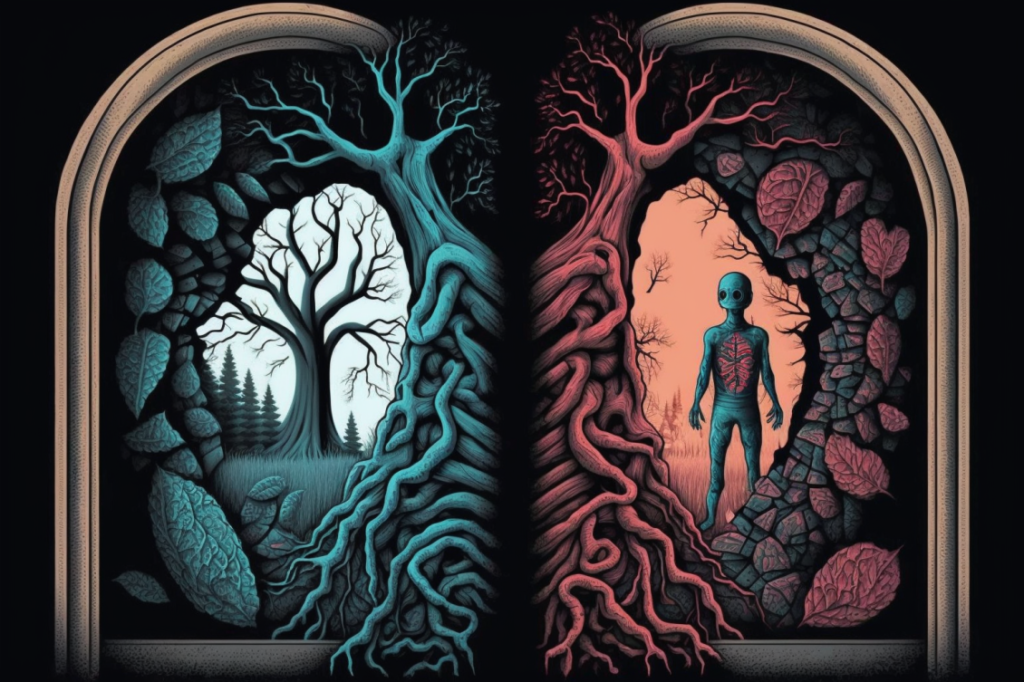
Introduction
Volatile relationships can be emotionally intense, filled with highs and lows that leave both partners feeling drained and uncertain. Recognizing the signs, understanding the causes, and learning how to manage or leave a volatile relationship are essential steps in prioritizing your mental health and well-being. This comprehensive guide will delve deeper into the characteristics of volatile relationships, explore possible causes, and offer actionable steps for navigating these turbulent waters.
Characteristics of a Volatile Relationship
Emotional Highs and Lows
One of the most prominent characteristics of a volatile relationship is the presence of extreme emotional highs and lows. One moment, both partners may feel incredibly connected and in love, and the next, they may be at each other’s throats. These emotional swings can be disorienting and exhausting for both individuals.
For example, a couple may have a fantastic weekend together, filled with laughter and shared experiences, only for a small disagreement on Sunday evening to escalate into a full-blown argument that leaves them not speaking for days.
Persistent Conflict
Volatile relationships often involve ongoing conflict and arguments that may arise from seemingly minor issues. These conflicts can be repetitive, with the same issues resurfacing time and time again, despite attempts to resolve them.
A couple might find themselves frequently arguing about household chores, with one partner feeling overwhelmed and unsupported while the other feels nagged and criticized. These arguments might escalate, involving harsh words, blame, and resentment, further damaging the relationship.
Unpredictable Behavior
Unpredictability is another hallmark of volatile relationships. One or both partners may exhibit erratic or impulsive behavior, making it difficult for the other to know what to expect. This unpredictability can create a sense of walking on eggshells, as one partner tries to avoid triggering the other’s volatile emotions.
For instance, a husband may come home from work in a great mood one day, only to become irritable and withdrawn the next, with no apparent explanation. This erratic behavior can leave his partner feeling confused and anxious, unsure of how to respond or support him.
Poor Communication
Volatile relationships often suffer from poor communication, with partners struggling to express their needs, feelings, and concerns effectively. Instead of engaging in open, honest dialogue, conversations may devolve into accusations, defensiveness, or stonewalling.
Consider a wife who feels her husband is not contributing enough to childcare responsibilities. Instead of calmly discussing her concerns, she might lash out in anger, accusing him of being selfish and uncaring. This accusatory tone is likely to make her husband defensive, shutting down the possibility of a productive conversation.
Get Professional Help from the best online couples therapy platform and it is %20 off.
Understanding the Causes of Volatile Relationships
While the specific causes of volatile relationships can vary, several factors often contribute to the unstable nature of these partnerships.
Emotional Instability
One or both partners may struggle with emotional regulation, experiencing intense mood swings and difficulty managing their emotions. This emotional instability can lead to erratic behavior and frequent conflict within the relationship.
Past Trauma
Past traumas or unresolved emotional issues can also contribute to volatile relationship dynamics. An individual who has experienced trauma may carry emotional wounds that manifest as anger, fear, or insecurity within their romantic relationships.
Unresolved Issues
Volatile relationships may be fueled by unresolved issues that persistently resurface. These underlying problems might stem from unmet needs, unaddressed concerns, or misaligned expectations within the relationship.
Poor Communication Skills
Ineffective communication can exacerbate volatility in a relationship. When partners struggle to express their emotions, needs, and concerns effectively, misunderstandings and conflict can arise.
Key Takeaways
- Volatile relationships are characterized by emotional highs and lows, persistent conflict, and unpredictable behavior.
- Common causes of volatile relationships include emotional instability, past trauma, unresolved issues, and poor communication skills.
- Volatile relationships can have a significant impact on mental health, contributing to anxiety, depression, stress, and issues with self-esteem and self-worth.
- Managing a volatile relationship may involve seeking professional help, improving communication skills, and establishing clear boundaries and expectations.
- Consider ending a volatile relationship if there are safety concerns, a lack of progress in improving the relationship, or if the relationship is hindering your personal growth.
Managing a Volatile Relationship
Seeking Professional Help
Therapy or couples counseling can be beneficial in addressing the issues underlying a volatile relationship. A mental health professional can help both partners develop healthier communication skills, identify triggers for conflict, and work on strategies for emotional regulation.
Establishing Boundaries
Setting clear boundaries can help mitigate the effects of volatile behavior in a relationship. Both partners should have a shared understanding of what is and is not acceptable behavior, as well as consequences for crossing those boundaries. This mutual agreement can create a safer space for both individuals to navigate their emotions and interactions.
Developing Emotional Regulation Skills
Both partners can benefit from learning and practicing emotional regulation techniques. Strategies such as mindfulness, deep breathing exercises, and self-reflection can help individuals manage their emotions more effectively, reducing the intensity and frequency of emotional outbursts.
Fostering Emotional Connection
Building and maintaining an emotional connection is crucial in a volatile relationship. Regularly engaging in activities that foster intimacy and emotional closeness can help counterbalance the emotional turmoil. These activities might include spending quality time together, engaging in open and honest conversations, or showing affection and appreciation for one another.
Knowing When to Walk Away
In some cases, the best course of action may be to end a volatile relationship. If the emotional turmoil is causing significant distress or harm to one or both partners, or if efforts to improve the relationship dynamics are unsuccessful, it might be time to prioritize personal well-being and seek a healthier relationship.

Long-Distance Volatile Relationships
Long-distance relationships present unique challenges, and when combined with the volatility, the difficulties can be magnified. The physical distance between partners may exacerbate communication problems, heighten emotional instability, and create additional stressors.
In a long-distance volatile relationship, it’s crucial to establish and maintain open lines of communication, utilizing various communication channels such as video calls, texts, and emails to stay connected. Additionally, setting clear expectations and boundaries around communication and visits can help reduce misunderstandings and conflicts.
It’s also essential for partners in a long-distance volatile relationship to prioritize emotional connection and intimacy, even from afar. Sharing experiences, engaging in virtual date nights, or sending thoughtful messages can help foster a sense of closeness despite the distance.
Read our article on Long Distance Relationships.
Intimacy in Volatile Relationships
Intimacy can be significantly impacted in volatile relationships. The emotional turmoil and frequent conflicts may create an environment where trust, vulnerability, and emotional connection are difficult to maintain. As a result, both emotional and physical intimacy may suffer.
In order to address intimacy issues in a volatile relationship, both partners need to be committed to resolving conflicts in a healthier manner, improving communication, and prioritizing their emotional connection. By doing so, they can begin to rebuild trust and create a safe space where intimacy can flourish.
Engaging in activities that promote emotional intimacy, such as deep conversations, sharing personal experiences, or practicing vulnerability, can help strengthen the emotional bond between partners. Furthermore, addressing any issues related to physical intimacy is also essential, as this can be a vital component of a healthy relationship.
Intimacy is an important and wide topic for relationships, read our article on Intimacy and how to re-gain it when you lost it?
When to Listen to Your Gut Feelings in Ending a Volatile Relationship
Gut feelings can often serve as an intuitive signal, alerting us to potential problems or danger in various life situations, including relationships. When it comes to volatile relationships, it’s essential to listen to your gut feelings, especially when considering whether or not to end the relationship.
If your gut is telling you that the relationship is causing you significant distress, harm, or emotional turmoil, it’s crucial to pay attention to those feelings. Additionally, if you’ve made efforts to address the volatility and improve the relationship dynamics, but your gut is telling you that it’s not working, it may be time to consider ending the relationship.
It’s important to remember that your well-being and mental health should always be a priority, and sometimes, the best course of action is to walk away from a volatile relationship that is causing more harm than good. Listen to your intuition and take the necessary steps to protect yourself and seek healthier, more stable connections.
Knowing when to listen to your gut is a lifesaver but do you know the difference between Gut Feelings and Relationship Anxiety? Read and be master of your gut feelings
Long-Term Effects of Volatile Relationships
Damaged Self-Esteem
The emotional rollercoaster of a volatile relationship can take a toll on an individual’s self-esteem. The constant highs and lows can leave one feeling unworthy, unlovable, or inadequate.
Mental Health Struggles
The stress and emotional turmoil associated with volatile relationships can contribute to the development or exacerbation of mental health issues such as anxiety, depression, or post-traumatic stress disorder (PTSD).
Relationship Dysfunction
Experiencing a volatile relationship can contribute to ongoing relationship dysfunction, as individuals may struggle to establish healthy patterns in future partnerships or may be drawn to similar volatile dynamics.
More information about Relationship Dysfunction on Psychology Today.
Conclusion:
Volatile relationships can be emotionally exhausting and challenging to navigate. By recognizing the signs, understanding the underlying causes, and implementing strategies to manage or leave the relationship, you can prioritize your well-being and move toward healthier, more stable connections. Remember, it’s essential to seek professional help if necessary and prioritize self-care in the face of volatile relationship dynamics.
FAQs
What are the signs of a volatile relationship?
Emotional highs and lows, persistent conflict, unpredictable behavior, and poor communication are common signs of a volatile relationship.
What causes a volatile relationship?
Emotional instability, past trauma, unresolved issues, and poor communication skills are common factors that contribute to volatile relationship dynamics.
How can you manage a volatile relationship?
Seeking professional help, establishing boundaries, developing emotional regulation skills, fostering emotional connection, and knowing when to walk away are essential strategies for managing a volatile relationship.
What are the long-term effects of volatile relationships?
Damaged self-esteem, mental health struggles, and relationship dysfunction are potential long-term effects of being in a volatile relationship.
When is it time to walk away from a volatile relationship?
It may be time to walk away from a volatile relationship when the emotional turmoil is causing significant distress or harm to one or both partners, or if efforts to improve the relationship dynamics are unsuccessful.





